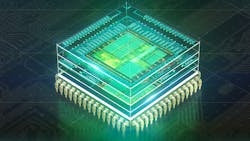DOD to probe threats of quantum computing to national security, such as the ability to crack encryption
WASHINGTON – The U.S. Department of Defense (DOD) must determine the national security threat posed by quantum computing, as part of the new annual defense policy law. C4ISR.net reports. Continue reading original article
The Military & Aerospace Electronics take:
25 Jan. 2020 -- The fiscal 2021 National Defense Authorization Act, which became law New Year’s Day after the Senate overrode President Donald Trump’s veto, contained a provision that directed the department to assess the current and potential threats and risks posed by quantum computing technologies to critical national security systems.
Powerful quantum computers pose a danger to national security because they may be able to break current encryption capabilities, meaning secure communications under current systems will be nearly impossible.
On the flip side, adversaries with quantum capabilities will be able to communicate securely without fear of interception by the U.S., unless it achieves its own quantum computer. Quantum computing is the use of quantum phenomena such as superposition and entanglement to perform computation.
Related: Trusted computing and the challenges of cryptographic algorithms in quantum computing
Related: The future of artificial intelligence and quantum computing
John Keller, chief editor
Military & Aerospace Electronics
